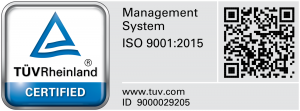


The International Day of Clean Energy, observed annually on January 26th, was established to raise global awareness about the importance of clean and sustainable energy sources in addressing environmental challenges. The United Nations designated this day to promote the transition towards cleaner energy alternatives and to underscore the significance of reducing dependence on fossil fuels. The idea behind the International Day of Clean Energy is rooted in the growing recognition of the environmental impact of traditional energy sources and the need for a collective effort to shift towards more sustainable practices.
The day holds immense significance in the context of the ongoing global climate crisis. The burning of fossil fuels for energy contributes significantly to greenhouse gas emissions, leading to climate change and environmental degradation. The International Day of Clean Energy serves as a platform to highlight the urgency of adopting cleaner alternatives to mitigate climate change's adverse effects. Additionally, the day emphasizes the role of clean energy in achieving sustainable development goals, including access to affordable and clean energy for all, as outlined in the United Nations' 2030 Agenda.

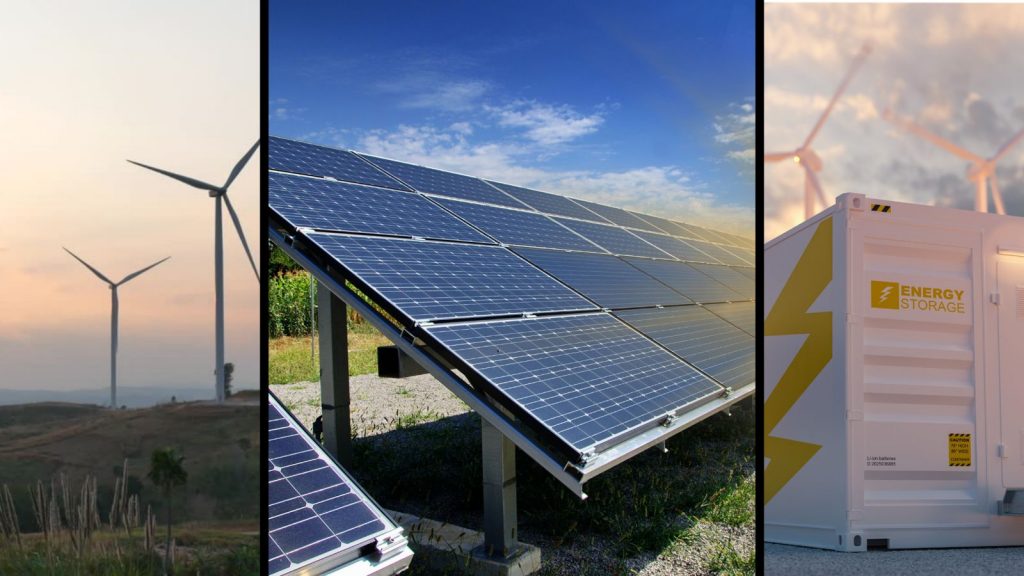
DEIF (Danish Electronics, Instruments, and Systems) is a global supplier of green, safe, and reliable control solutions for decentralized power production on land and at sea. DEIF's products and solutions are primarily focused on power management, control, and monitoring systems for various applications, including renewable energy, marine, offshore, and industrial sectors.

The tale of Ultech Engineering's alliance with DEIF commenced in 2016, initiating a partnership that would establish groundbreaking benchmarks in the realm of electrical engineering. In the context of sustainability, DEIF plays a role in advancing the integration and optimization of renewable energy sources. The company's solutions contribute to the efficient and sustainable use of power by providing control systems for renewable energy installations such as wind turbines, solar power plants, and hybrid power systems.
DEIF Wind Power Technology, a division of DEIF A/S established in Denmark in 1933, is a global provider of control solutions for decentralized power production, marine/offshore, and wind turbines. With a strong presence in Europe and Asia, the company's headquarters in Skive, Denmark, strategically positions it in the hub of wind turbine activity. DEIF Wind Power offers robust turbine components designed for optimal performance in diverse environmental conditions, ensuring compliance with safety regulations.
Their expertise spans wind turbine technology, control strategy, grid compliance, pitch systems, and park power management. The company provides solutions such as retrofit, wind park control, pitch control systems, and main control systems, contributing to reduced Levelized Cost of Energy (LCoE) and increased green electricity production. Choose DEIF Wind Power for innovative and reliable solutions aimed at enhancing turbine performance.
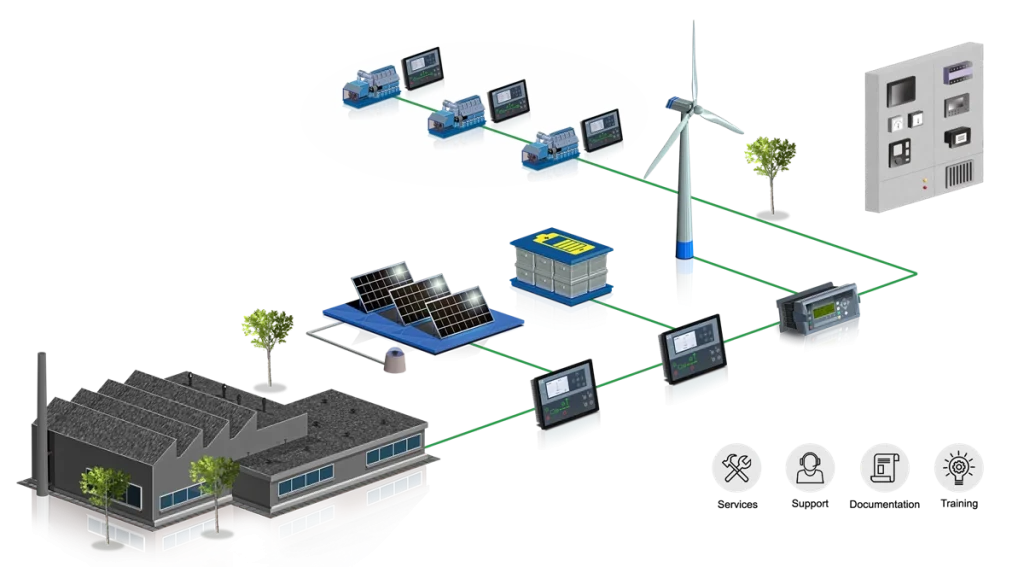
DEIF offers comprehensive off-grid hybrid power solutions through their greenfield controllers, tailored for diverse applications in areas without grid power. These controllers facilitate the seamless integration of fossil-fuelled and renewable hybrid sources, ensuring stable voltage and frequency. Configured to maximize sustainable power from PV panels, wind turbines, and other renewables, they support energy storage systems (ESS) for backup, peak shaving, and load sharing.
The controllers allow flexible management of up to 32 gensets and up to 16 sustainable power plants, with customizable priority settings for connected power sources. With features like built-in power metering and compatibility with various sensors, meters, and weather stations, DEIF's power management solution proves ideal for self-consumption applications, offering reliable performance and high customizability through the user-friendly M-Logic tool.

In a broader sense, clean energy solutions often involve technologies related to renewable energy sources such as solar, wind, hydro, and other sustainable methods of power generation. Control systems, like those provided by DEIF, play a crucial role in efficiently managing and integrating these renewable energy sources into power grids and applications.
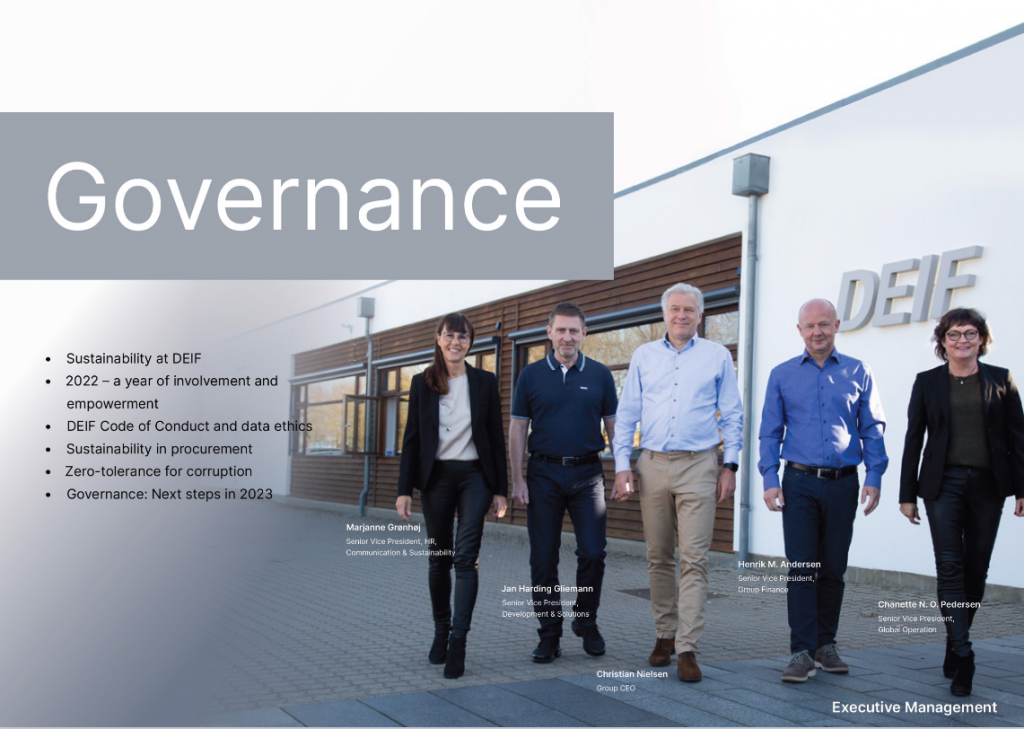
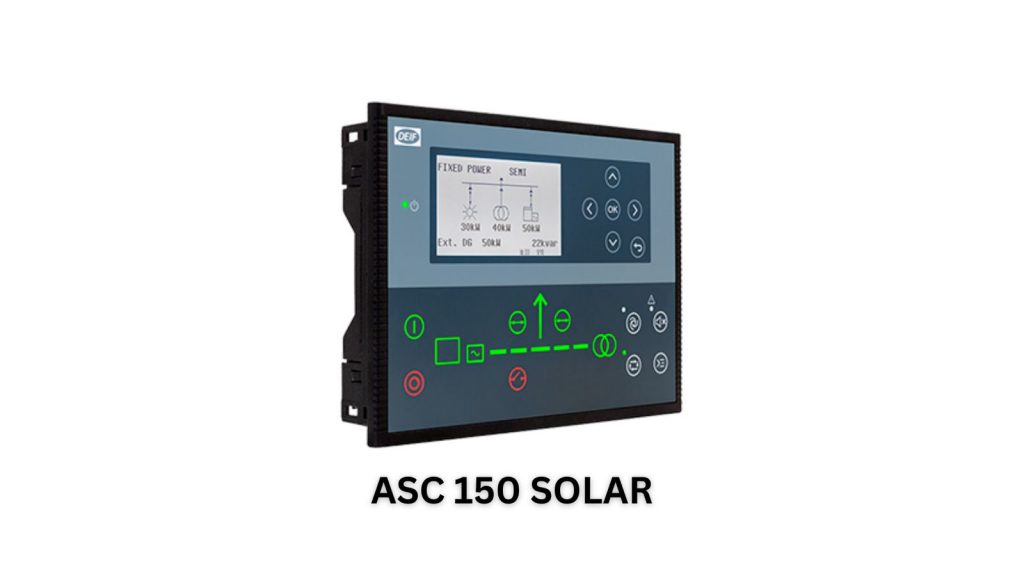
In the ever-evolving landscape of renewable energy solutions, the ASC 150 Solar emerges as a game-changer, providing effective, flexible, and scalable control for photovoltaic (PV) inverters. This innovative controller, designed by DEIF, is tailored for hybrid power applications, offering a plethora of options for both greenfield and brownfield projects.
The ASC 150 Solar is a testament to built-in scalability and flexibility. Complying with the SunSpec standard, it seamlessly integrates with a wide range of inverter brands, making it a versatile choice for various applications. This controller stands out by offering multiple plant modes, including fixed power and Mains Power Export (MPE). With four AC measurements, it empowers users to calculate precise power set points for their PV power plants.
Configuring the ASC 150 Solar is a breeze, thanks to its adaptability. Parameters can be easily set using the free PC-based DEIF utility software, allowing users to fine-tune inputs, outputs, and parameters effortlessly. Moreover, the controller can be repurposed for different applications by adjusting its parameters or integrating it with an external energy management system (EMS). This unique feature transforms the controller into various variants, such as a genset controller, providing users with unparalleled control over their energy systems.
The ASC 150 Solar operates flawlessly in a broad temperature range from -40 to +70 °C, making it suitable for a wide spectrum of grid-tied and off-grid applications. Its compatibility with other DEIF controllers in a power/energy management system further enhances its utility. The controller can efficiently manage PV systems with up to 32 inverters, responding rapidly to both load and weather changes.
Equipped with fast Ethernet Modbus master communication, the ASC 150 Solar ensures rapid and reliable communication with PV inverters. This capability, delivered through Ethernet, enhances the speed of data exchange compared to traditional RS485 connections. The result is a solar plant that responds swiftly to dynamic operating conditions, providing real-time status updates and monitoring information.
The user-friendly, IP65 protected display of the ASC 150 Solar offers a clear and simple line diagram, enabling users to monitor the status of all power sources at a glance. Supporting multiple languages, including Chinese and Russian, this display provides a comprehensive overview with arrows indicating power flow. Furthermore, the controller is compatible with DEIF Insight, a responsive remote monitoring service. This service offers real-time genset data, a customizable dashboard, GPS tracking, equipment and user management, as well as email and/or SMS alerts.
The ASC 150 Solar excels in power management, ensuring the optimal utilization of PV power. Whether in off-grid applications with a genset or storage, or in grid-tied scenarios, the controller seamlessly maximizes PV power, balances loads, and regulates PV production to match self-consumption. It also facilitates the integration of surplus PV energy into the grid or charging energy storage systems.
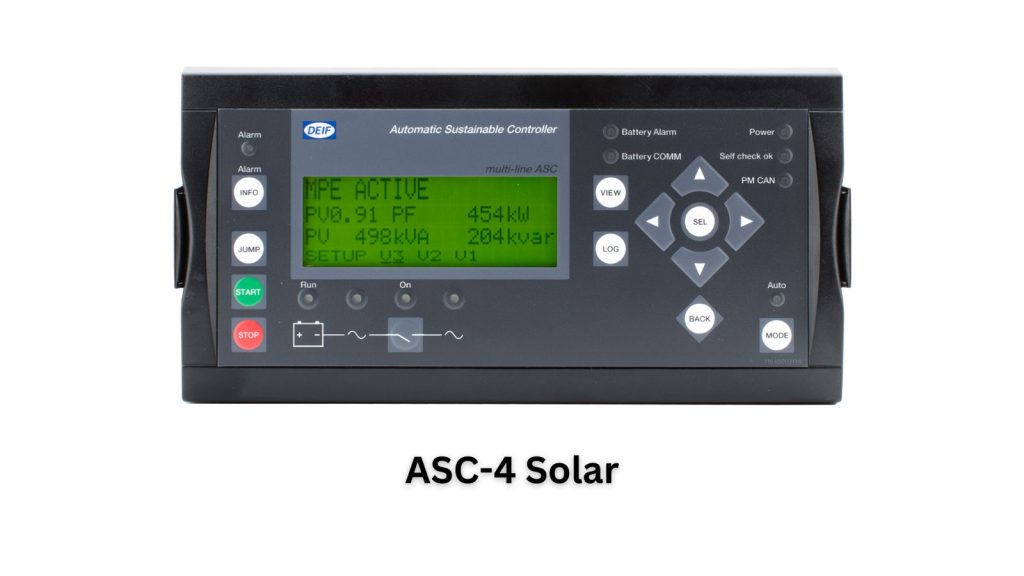
In the ever-evolving landscape of sustainable energy, the DEIF ASC-4 Solar emerges as a pioneering solution for maximizing the integration of solar power in greenfield hybrid power plants. Tailored for seamless interfacing with other DEIF controllers and a diverse array of PV inverters, this automatic sustainable controller is set to redefine the efficiency and reliability of hybrid power systems.
At the heart of the ASC-4 Solar's capabilities is its ability to automatically optimize sustainable power penetration. This means that, regardless of the operation mode, the controller intelligently adjusts the contribution of solar power based on the total load demand of the hybrid plant. This dynamic adaptation ensures that sustainable power is maximized without compromising essential factors such as the minimum genset load demand.
In off-grid scenarios, the ASC-4 Solar introduces a minimum genset load constraint, addressing concerns related to compromised PV production. By maintaining a specified load on the gensets, the controller mitigates the risk of reverse power situations and ensures the prevention of impure combustion and exhaust problems.
The versatility of the ASC-4 Solar extends to both grid-tied and self-consumption applications. In grid-tied setups, surplus PV energy can be seamlessly fed into the grid, aligning with feed-in tariffs and potentially generating profits. Alternatively, the controller can regulate production through PV curtailment, matching self-consumption needs and preventing any unwanted feed-in of PV power to the grid, adhering to grid operator regulations.
DEIF's commitment to versatility is evident in the ASC-4 Solar's compatibility with a broad spectrum of PV inverters. As a member of the SunSpec Alliance, DEIF ensures constant updates to the list of compatible inverters, making it a suitable choice for integration with virtually any PV installation.
Setting itself apart in the realm of sustainability, the ASC-4 Solar is compatible with leading sky imager solutions. This unique feature enables the controller to predict weather conditions and PV production, allowing for preemptive measures, such as starting up the required number of gensets before clouds reduce PV production.
Safety and reliability are paramount considerations in the design of the ASC-4 Solar. The built-in emulation feature facilitates controlled and safe interaction with the controller for system testing without risking damage to any equipment. This functionality allows users to perform comprehensive tests with ease, ensuring the robustness of their hybrid power systems.
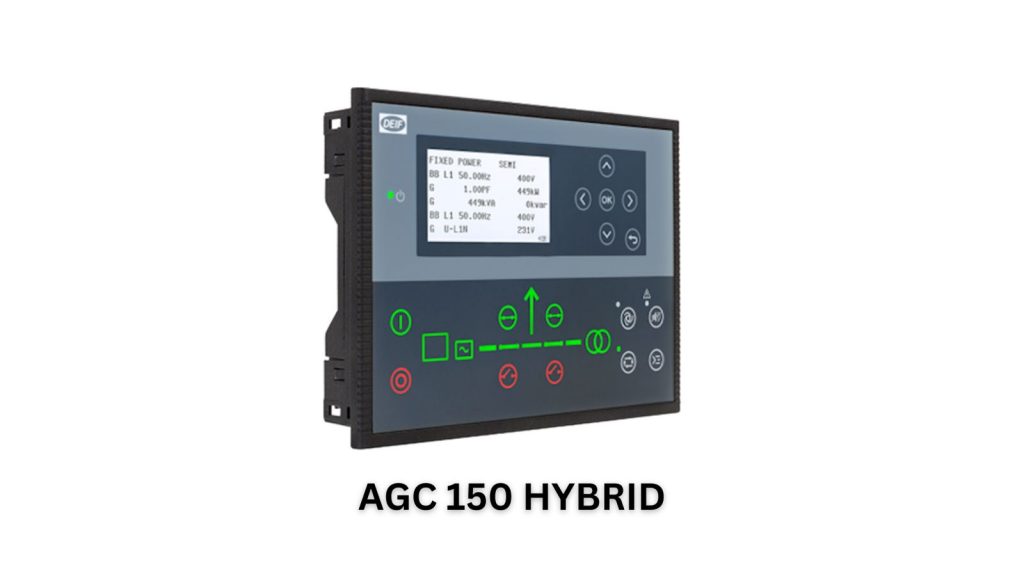
In the ever-evolving landscape of renewable energy, the AGC 150 Hybrid emerges as a game-changer, providing a comprehensive solution for the protection and control of hybrid installations incorporating both photovoltaic (PV) energy and genset functionality. Designed with versatility in mind, this advanced genset controller is particularly well-suited for small to medium-sized PV plants, including rooftop installations with up to 16 inverters.
The AGC 150 Hybrid excels in managing the symbiotic relationship between PV and genset systems. Whether mounted directly on the genset or utilized as a stand-alone controller, it efficiently oversees PV power, acting as a dedicated hybrid controller. This flexibility extends to controlling up to two gensets, making it an ideal choice for both synchronizing and non-synchronizing projects, whether operating in island or parallel to the mains modes.
A standout feature of the AGC 150 Hybrid is its ability to handle power production from both PV inverters and gensets to achieve the highest possible PV penetration while ensuring the lowest carbon dioxide (CO2) emissions. By intelligently synchronizing or operating in parallel with the mains, this controller contributes to a cleaner and more sustainable energy ecosystem.
Ease of use is a hallmark of the AGC 150 Hybrid. The controller boasts a sunlight-readable LCD that provides quick access to vital genset information. Illuminated buttons with an intuitive layout guide operators seamlessly through functions, and configurable shortcuts offer swift access to commonly used features. With up to three levels of password-protected and role-based access, the AGC 150 ensures that users can configure parameters relevant to their roles.
Quality and durability are non-negotiables for the AGC 150. Constructed from robust materials, this controller has undergone rigorous testing to withstand wear and tear in diverse and challenging environments. Its reliability shines through, making it a robust choice for green energy applications.
The AGC 150 Hybrid introduces several smart features, including minimum genset load support, load calculation based on solar power, and the ability to initiate genset start/stop sequences based on mains import/export or PV production. It seamlessly integrates PV in various modes, including MPE (Mains Power Export/Import), LTO (Load Take Over), Fixed Power, AMF (Automatic Mains Failure), and even Peak Shaving.
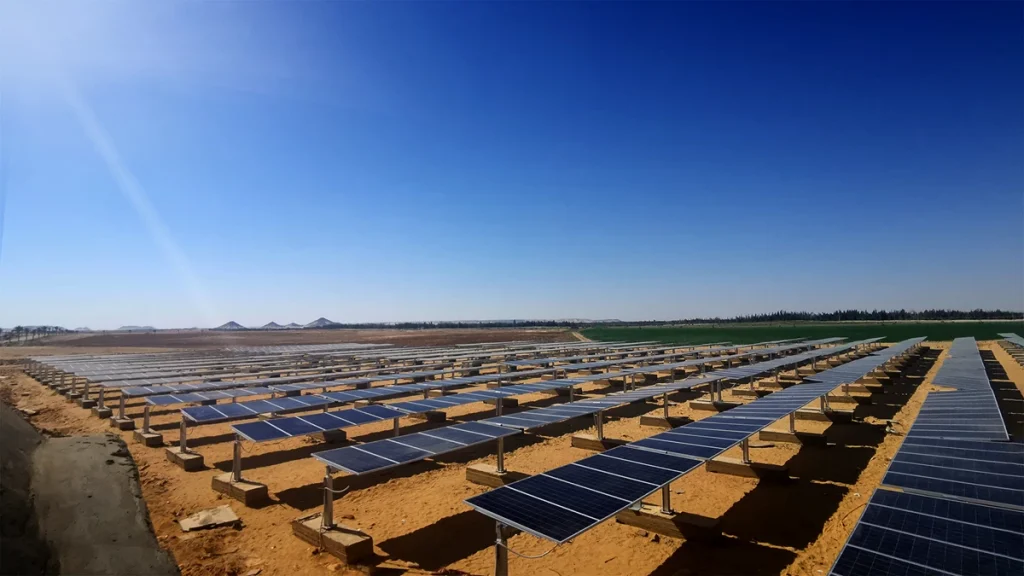
In Egypt's agricultural evolution, a Bahryia Oasis fruit grower embraced solar power, reducing costs and enhancing sustainability. Gila Al Tawakol Electric partnered with Schneider Electric and DEIF, utilizing the ASC-4 Solar controller for rapid and efficient solar plant commissioning. The farmer saw a notable 50,000-liter monthly fuel reduction within three months. Now expanding, the project integrates two more generators controlled by DEIF's ASC controller and MIC power meters, showcasing the reliability of their components. This success aligns with Egypt's renewables push, with companies like Gila Al Tawakol Electric actively contributing, and the introduction of DEIF's new AGC-150 Hybrid controller is poised to be a game-changer for smaller setups in multiple PV plants across Egypt.
In conclusion, the International Day of Clean Energy underscores the global imperative to shift towards sustainable energy sources, a mission championed by collaborative efforts such as the dynamic partnership between Ultech Engineering and DEIF. From the success of the YD420 project in 2016, this collaboration has evolved into a commitment to innovation, sustainability, and excellence, expanding DEIF solutions across diverse industries in the Sarawak region.
As Ultech Engineering, appointed as the System Integrator for DEIF in Sarawak, continues to empower businesses with cutting-edge solutions, this alliance represents more than a partnership—it embodies a fusion of expertise and innovation. Positioned as a beacon of industry knowledge, Ultech Engineering, in collaboration with DEIF, contributes significantly to the realization of a cleaner and technologically advanced future, reflecting a shared vision for excellence in modern power management.


